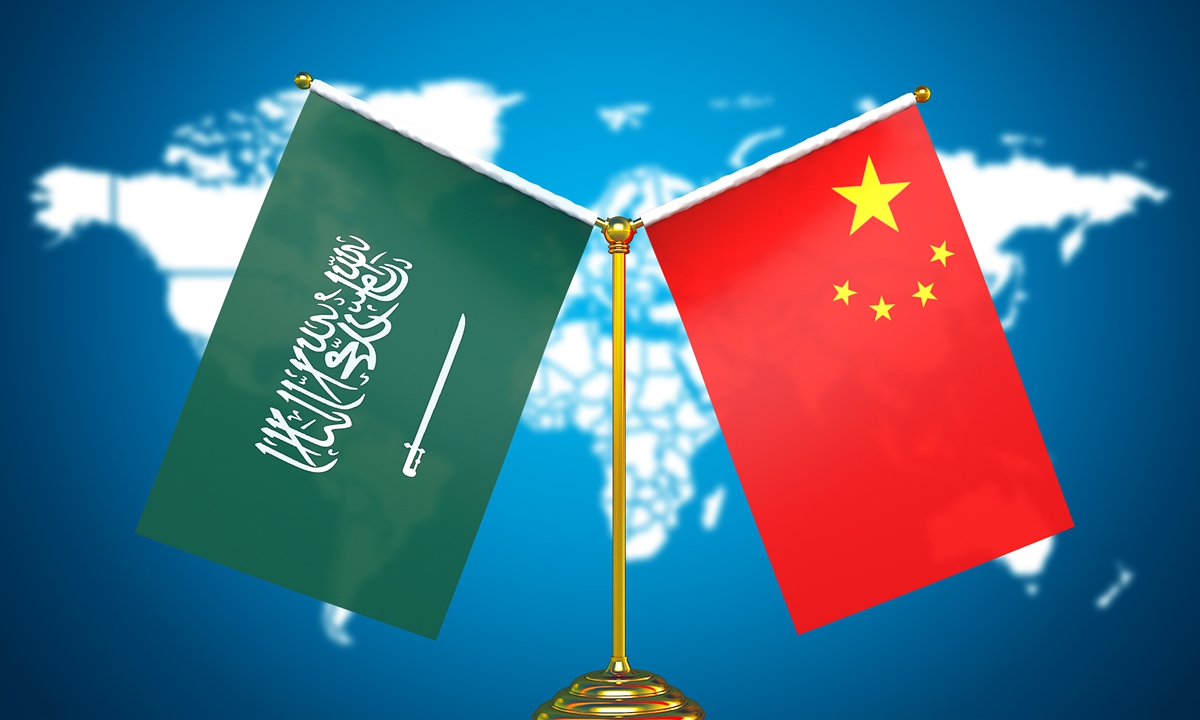
China, Saudi Arabia photo:VCG
Concerned about China-Saudi Arabia cooperation on artificial intelligence (AI) technology, the US expanded export license requirements (GPUs) for graphics processing units made by some US companies to make it harder for China to acquire cutting-edge technology, media reported on Tuesday. Experts noted that the US move aims to slow China's development and limits that of Saudi Arabia as well.
According to media reports including the Financial Times on Tuesday, Professor Xu Jinchao, an American Chinese mathematician at Saudi Arabia's King Abdullah University of Science and Technology, had launched an Arabic-focused large language model (LLM) named AceGPT, in partnership with the Chinese University of Hong Kong, Shenzhen, and the Shenzhen Research Institute of Big Data.
This model is part of Saudi Arabia's efforts to lead the regional development of AI technology, including the creation of supercomputers and the implementation of LLMs, which form the foundation of generative AI systems like chatbots.
However, the US has been concerned about the transfer of technology between Saudi Arabia and China and has expanded export license requirements for GPUs made by Nvidia and AMD, adding barriers for Chinese entities to acquire these cutting-edge chips crucial for building generative AI models.
"The US' move is aimed at great power competition with China, in an attempt to slow down China's development, and in doing so, it as a matter of fact restricts Saudi Arabia's development as well," Li Haidong, a professor at the China Foreign Affairs University, told the Global Times on Tuesday.
This approach by the US is highly unethical, as it restricts cooperation and development between China and Saudi Arabia. The US is acting as it pleases, resulting in the superpower playing an extremely negative role in both China-Saudi Arabia relationships and the affairs in the Middle East region, Li said.
More importantly, the export restrictions will harm the global development of AI as well, Li noted. "By doing so, the US is undermining the shared benefits of advanced technology among humanity and consequently affects the progress of the AI industry, which is dedicated to serving the well-being of mankind," he said.
China and Saudi Arabia enjoy a wide range of cooperation spaces, including oil, AI and people-to-people exchanges, with the China-proposed
Belt and Road Initiative diversifying cooperation in addition to traditional energy infrastructure between the two countries.
In the future, for the development of Saudi Arabia and the Middle East countries themselves, continued cooperation with China is inevitable, Li said. "Only China's position and role in the Middle East region is positive in all directions, and it is also able to persuade all parties involved in the conflict to come to the negotiating table to reach an agreement," he said.
The advantage of China's good relationship with Middle Eastern countries is completely lacking in the US, so its destructive actions also stem from its concern over China's rising position in the region, Li noted.




